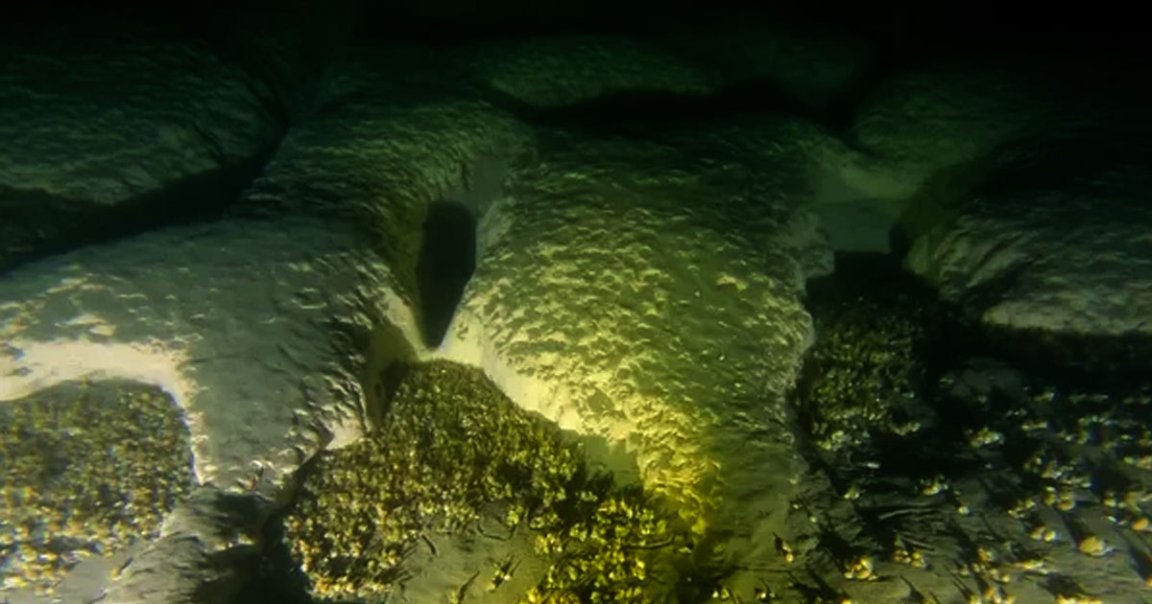
Hole Up
There are “dozens” of holes lining the floor of Lake Michigan — and scientists are stumped as to why they’re there.
As LiveScience reports, researchers at a protected region of the Great Lake are less sure than ever about the strange holes after doing a survey of the lakebed with a submersible robot.
The bizarre craters were first spotted two years ago during a survey by the Wisconsin Shipwreck Coast Maritime Sanctuary (WSCMS), which covers a protected area of Lake Michigan known to be home to at least 36 shipwrecks.
With the help of the National Oceanic and Atmospheric Administration’s (NOAA) Great Lakes Environmental Research Laboratory, the sanctuary’s scientists have now gotten a closer look at the holes — but they still have a lot of questions.
“Any kind of new discovery in the Great Lakes is exciting,” Russ Green, a maritime archaeologist with the sanctuary, told LiveScience. “But these features really stand out — they are in deeper water… and weren’t known before, as far as we can tell.”
Dreamwork
Coincidentally, local shipwreck hunter Brendon Baillod told the website that he also encountered the holes in the bottom of Lake Michigan around the same time as the sanctuary’s researchers while looking for a wrecked freighter. He found that the craters measured between 20 to 40 feet deep.
“There were dozens of them in our search grid,” the shipwreck enthusiast recounted. “Most were 500 to 1,000 feet in diameter and of irregular shapes.”
Though it took a while to compile all their data, Baillod, Green, and their colleagues eventually got in touch with scientists from the NOAA to plan an expedition. That mission was finally executed this August, LiveScience notes, when a remotely-operated submersible was sent down hundreds of feet to the depths of Lake Michigan to examine the holes.
In an interview earlier this year with the Milwaukee Journal Sentinel, NOAA scientist Steve Ruberg said that the first foray uncovered roughly 40 “perfect little circles” with shrimp and other marine wildlife “doing their thing in the dark down there.”
As of now, the prevailing theory is that the holes are some kind of sinkhole — but the scientists and shiphunters are holding off on calling them that definitively until they can do more research.
“We’ll be exploring them for years to come,” Green told LiveScience.
More on underwater revelations: NASA Insists It Didn’t Do Much Work on the Titanic Sub That Imploded, Killing Its Crew